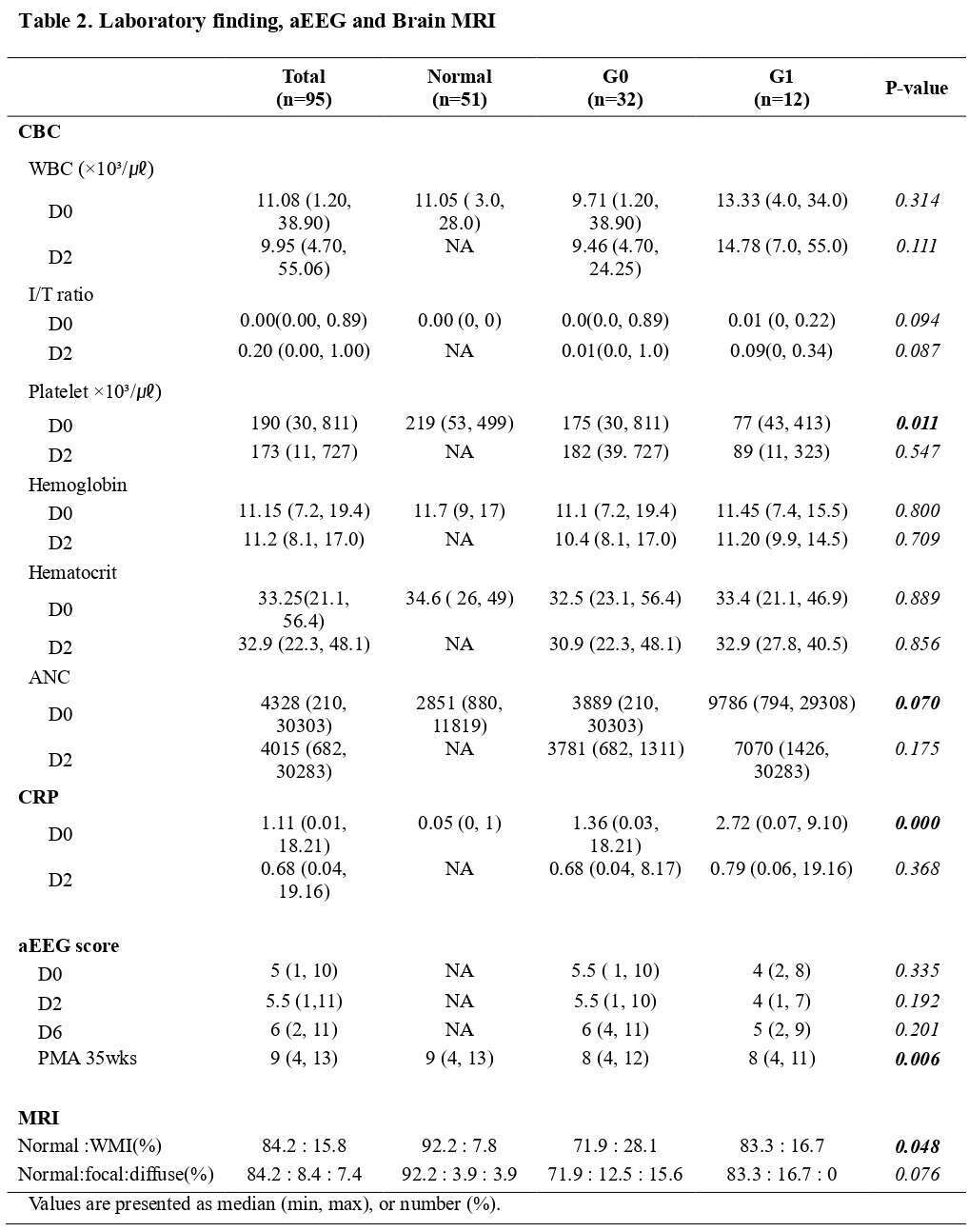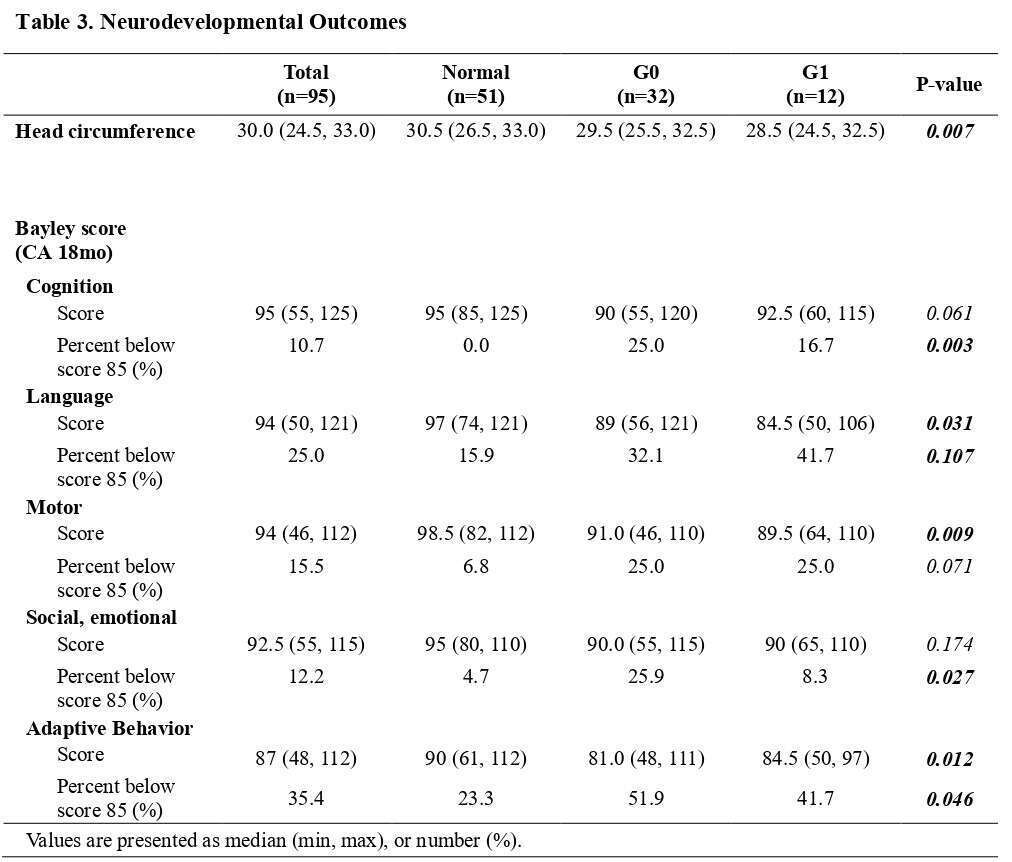
Effects of Sepsis and Necrotizing Enterocolitis on Neurodevelopment in Preterm Infants
Background: In premature infants, white matter injury (WMI) of brain is major cause of neurodevelopmental impairment. Several clinical and animal studies have suggested that WMI could be induced by systemic inflammation in this population.
Objective: To investigate whether preterm infants who experienced systemic inflammation such as sepsis or necrotizing enterocolitis (NEC) would have abnormal findings in brain MRI at term equivalent age and impaired neurodevelopment at 18 months of corrected age (CA).
Methods: This was a prospective cohort study including infants born before 30 weeks of gestation or less than 1,250g at birth. They were initially assigned as the N group and further assigned according to the presence of sepsis and NEC; G0 (clinical systemic inflammation without proven sepsis or NEC, n=32), G1 (culture proven sepsis or NEC, n=12) and N (no systemic inflammation, n=51). Findings from laboratory results, cerebral oximeter and amplitude-integrated EEG (aEEG) at each event were collected. Brain MRI at term equivalent age (TEA) and aEEG at 35 weeks of postmenstrual age (PMA) were evaluated and the Bayley-III was performed at 18 months of CA.
Results: Infants in the G0 and G1 group had more WMI in the brain MRI at TEA and lower maturation scores in the aEEG at PMA 35 weeks than infants in the N group. Developmental scores of language, motor and adaptive behavior domains of the Bayley-III were significantly lower in the G0 and G1 groups. Among the laboratory findings at the episode of systemic inflammation, C-reactive protein and proportion of immature cells were negatively correlated with developmental scores in the Bayley-III and hemoglobin level was positively correlated with developmental scores.
Conclusion: Systemic inflammatory conditions were associated with WMI at TEA and adverse neurodevelopmental outcomes at 18 months of CA. Several markers of systemic inflammations at the episode were correlated with developmental scores.




Powered by Eventact EMS